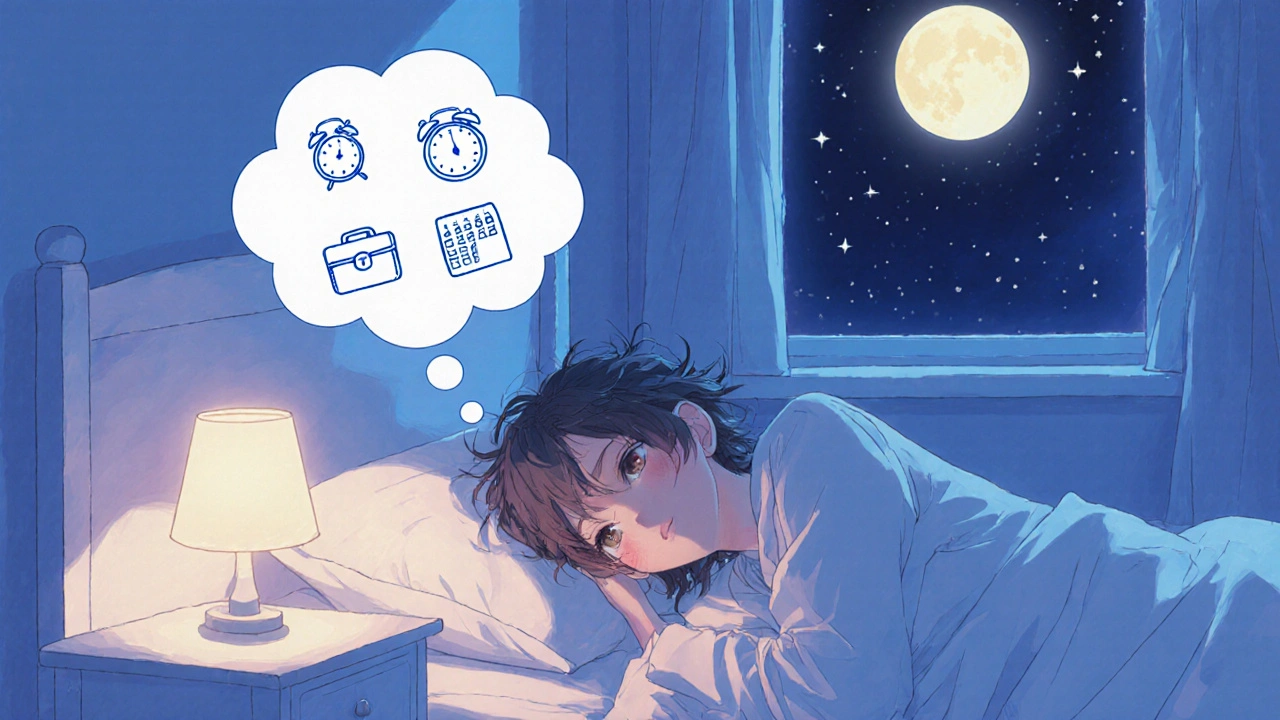Cognitive Behavioral Therapy for Insomnia: What Works and Why
When you can’t sleep, lying awake night after night isn’t just frustrating—it’s draining your energy, focus, and mood. Cognitive Behavioral Therapy for Insomnia, a structured, evidence-based approach to fixing sleep problems by changing thoughts and habits. Also known as CBT-I, it’s the first-line treatment recommended by sleep experts worldwide—not because it’s new, but because it actually works long-term. Unlike sleeping pills that mask the problem, CBT-I digs into why you can’t sleep in the first place. It’s not about counting sheep or drinking chamomile tea. It’s about retraining your brain and body to associate your bed with sleep, not stress or worry.
CBT-I isn’t one thing—it’s a mix of tools. Sleep restriction, a method that limits time in bed to match actual sleep time, building stronger sleep drive. Stimulus control, a simple rule: if you’re not asleep in 20 minutes, get up and leave the bedroom until you feel sleepy. And then there’s cognitive restructuring, the part that tackles those racing thoughts like "I’ll never sleep tonight" or "If I don’t sleep, tomorrow will be a disaster". These aren’t just tips—they’re proven techniques backed by studies showing 70-80% of people with chronic insomnia improve significantly after just 4-6 weeks. You don’t need a therapist to start, but having one helps you stick with it when it gets tough.
What makes CBT-I different from other sleep advice is that it doesn’t rely on guesswork. It’s built on real data about how sleep cycles work, how anxiety hijacks your nervous system at night, and how your environment shapes your habits. You’ll learn how to track your sleep patterns, spot the triggers that keep you awake, and replace unhelpful routines with ones that actually support rest. It’s not a quick fix, but it’s the only insomnia treatment that keeps working after you stop doing it. And while some people turn to melatonin or prescription sleep aids, those often come with side effects or dependency risks. CBT-I doesn’t. It just gives you back control.
What you’ll find in the articles below are real-world stories, comparisons, and practical breakdowns of how people have used CBT-I to reclaim their nights. From simple daily routines that shift your body clock, to how anxiety about sleep makes insomnia worse, to what to do when you’ve tried everything else—these posts cut through the noise. You won’t find fluff. Just clear, no-nonsense guidance on how to finally get the sleep you’ve been missing.

